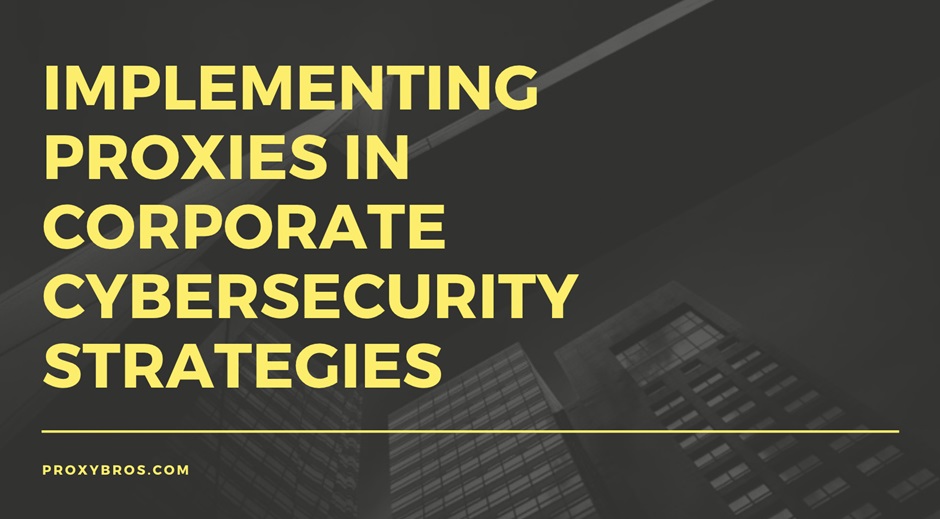Protecting Corporate Networks: The Role of Proxies in Enterprise Security
In corporate environments, robust cybersecurity is vital for safeguarding sensitive data and ensuring operational integrity. ProxyBros has long been insisting that proxies play a critical role in enterprise security strategies by enhancing data privacy, managing access controls, and mitigating cyber threats, thereby providing a secure framework for network protection.
Understanding Proxies in a Corporate Context
What is a Proxy Server?
Proxies act as intermediaries between users and the internet, routing requests and data traffic through a secondary server.
Types of Proxies Used in Enterprises
In corporate settings, residential SOCKS5 proxies, datacenter, and mobile servers are employed. Residential proxy servers offer authentic IP addresses from real devices, datacenter proxies provide high-speed connections from data centers, and mobile proxy servers employ IPs from mobile carriers, each serving different security and operational needs.
How Proxies Function in Network Security
They enhance network security by intercepting and managing traffic, hiding the original IP address, and controlling data flow, thereby providing anonymity, protecting sensitive information, and mitigating threats.
Key Roles of Proxies in Enhancing Enterprise Security
Access Control
- Managing Employee Access to Internet Resources
Proxies regulate employee access by restricting entry to unauthorized websites and services, ensuring compliance with corporate standards.
- Implementing Security Policies
Proxy servers enforce security policies across the organization, aligning internet usage with company protocols and safeguarding sensitive data.
Data Protection
- Encryption of Data Traffic
Proxies encrypt data traffic, securing it from interception during transit and preserving confidentiality.
- Preventing Data Leaks
By monitoring and controlling data flow, proxy servers block unauthorized transmissions, protecting against data leaks and breaches.
Threat Prevention and Mitigation
- Blocking Malicious Content
Acting as filters, proxies block access to malware, phishing sites, and other harmful content, shielding the network from threats.
- Anomaly Detection
Proxy servers monitor traffic patterns to detect anomalies, helping identify and respond to potential security breaches promptly.

Implementing Proxies in Corporate Security Strategies
- Select the Right Proxy Solution
I recommend you choose proxies based on your enterprise needs, considering factors like scalability, security, and the type of proxy (residential, datacenter, or mobile) best suited for the organization.
- Integrate with Existing Security Infrastructure
Integrate proxy servers with firewalls, VPNs, and IDS/IPS systems using best practices to create a cohesive and fortified security framework, enhancing overall network protection.
- Study Case Studies and Examples
I also advise examining real-world applications where proxies have successfully bolstered corporate network security, providing insights into their practical benefits and deployment strategies.
- Fulfill Ongoing Management and Maintenance
Do not neglect regularly updating and monitoring proxy servers to maintain their effectiveness and ensure they adapt to evolving security threats, guaranteeing continued robust defense mechanisms.
Challenges and Considerations
While proxy servers are valuable for enhancing enterprise security, they come with potential challenges.
One major concern is latency; proxy servers can introduce delays, leading to performance trade-offs.
Additionally, security risks associated with misconfigured or compromised proxies must be addressed to prevent potential vulnerabilities.
It's also crucial to navigate legal and ethical considerations, ensuring you use proxies in compliance with regulations and ethical standards.
Proper management and vigilant oversight are essential to maximize the benefits of proxy servers while minimizing their drawbacks.

